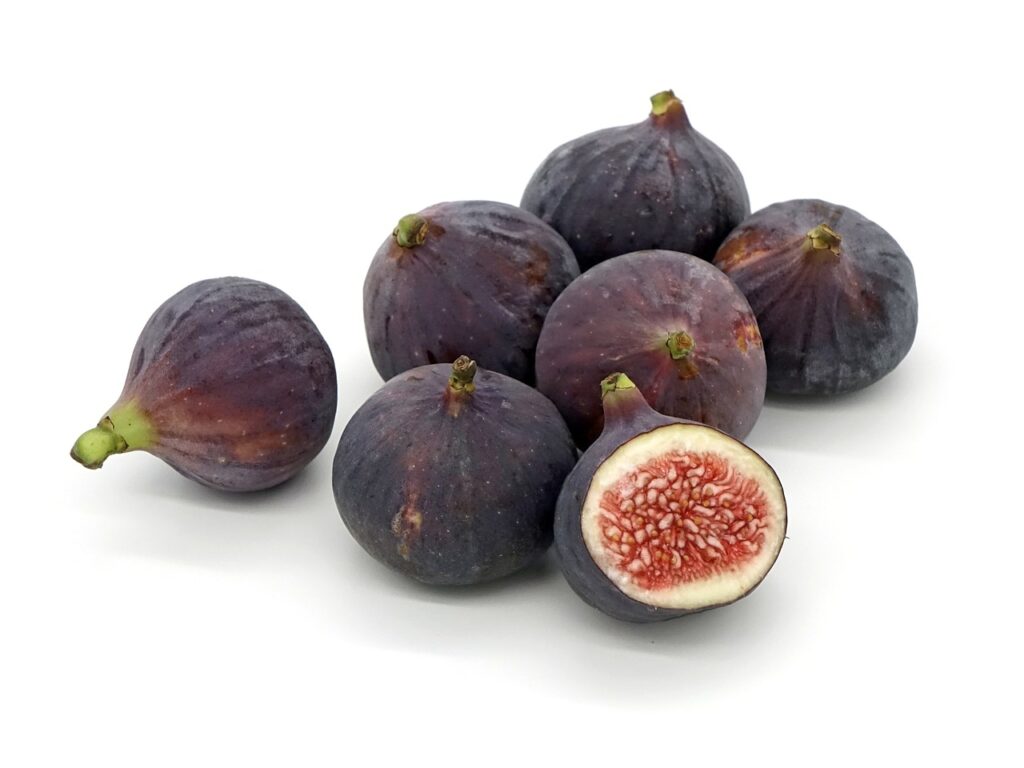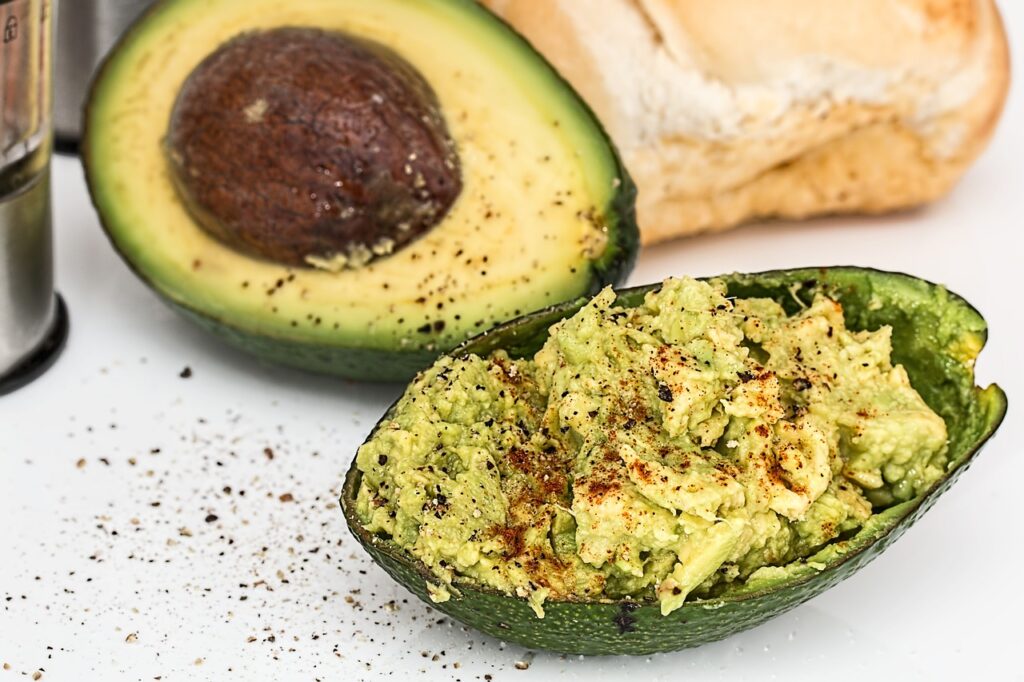1. Cherries
Cherries are delicious, but they’re full of a variety of great health benefits. Here are a few of the key health benefits of cherries:

1.1 Blood Sugar Control
Cherries have a low glycemic index (GI) of around 20, which means they don’t cause sharp increases in blood sugar.
– Cherries have low GI; therefore, this means they are low in the effect on blood sugar levels. It makes cherries one of the fruits recommended to patients who suffer from diabetes or patients that want to keep their blood sugar in check.
– The fiber content in cherries will slow down the rate of absorption of sugars into the bloodstream, thus keeping the blood sugar levels in control.
1.2. Rich in Antioxidants
These foods contain anthocyanins, the compounds that provide such deep red color to this fruit. These antioxidants keep at bay oxidative stress and inflammation, which cause the majority of chronic conditions seen today, including heart diseases, cancers, and neurodegenerative diseases.
– **Vitamin C**: Cherries are a good source of vitamin C, which supports immune function, promotes skin health, and aids in the absorption of iron from plant-based foods.
1.3. Anti-Inflammatory Properties
– Cherries, especially tart varieties, have been shown to reduce markers of inflammation in the body. This is beneficial for people with conditions like arthritis, gout, and inflammatory bowel diseases.
– The anthocyanins in cherries may decrease pro-inflammatory cytokine levels and reduce the oxidative stress.
1.4. Sleep Quality
– Melatonin, Cherries, especially tart cherries, are a natural melatonin source, a hormone that controls the sleep-wake cycle. Intake of cherries or tart cherry juice is likely to improve sleep quality while reducing insomnia.
– Various studies reported that drinking tart cherry juice right before sleep increases the improvement of sleep time and also sleep quality among elderly subjects.
1.5. Heart health
The antioxidants of cherries, especially anthocyanins, are connected with lowering one’s risk for heart diseases caused by improving the functionality of the blood vessels, minimizing oxidative stresses, and inflammation.
– Cherries have been able to reduce blood pressure and improved cholesterol levels, thus offering a healthier cardiovascular system
Gout Relief: It has been used for long as a natural remedy for gout relief, which is a sort of arthritis caused by the existence of uric acid in one’s joints. The antioxidants can help reduce uric acid content and reduce gout flare ups.
1.6. Helps in weight management
Low in calories, high in fiber, cherries are a good snack for anyone interested in weight management: low-calorie, filling, and full of water and fiber.
Their fiber also contributes to good digestion and an experience of being fuller longer to prevent overeating.
1.7. Supports muscle recovery
– Exercise Recovery, Cherry juice, particularly tart cherry, has been shown to lessen muscle soreness and expedite recovery after exercise. Antioxidants in cherries help alleviate exercise-induced muscle damage and accelerate the process of recovering from it.
1.8. May help improve memory and brain health
The antioxidants in cherries may prevent oxidative stress on brain cells, linked to age-related cognitive impairment and neurodegenerative diseases like Alzheimer’s.
– Cherries have even been shown to enhance memory and cognition in some research; however, more in this area is needed.
1.9. Skin health
– Cherries contain vitamin C and antioxidants, which are helpful in fighting free radicals and contributing to early aging. Vitamin C also stimulates collagen production, which provides skin with elasticity and reduces wrinkles.
1.10. Digestive health
– Cherries contain soluble fiber, which allows for easier digestion through promoting regular bowel movements and aids in the health of guts.
– Cherries also consist of fiber, which prevents constipation and maintains the overall health of the gastrointestinal system.
1.11. Anti-cancer potential
– Other studies suggest that antioxidants and phytochemicals in cherries are anticancer agents. Anthocyanins and other chemicals present in cherries have been demonstrated to suppress the growth of cancerous cells and reduce inflammation, which is usually linked with cancer.
1.12. Eye health
– Cherries contain vitamin A and beta-carotene, which are crucial in maintaining healthy vision. They protect against age-related macular degeneration and other eye conditions.
2. Figs
Figs are regarded to be among the healthiest fruits, because of its high fiber and antioxidant, vitamin, and mineral content.

2.1. Regulation of blood sugar
Figs have a glycemic index (GI) of around 35, which is considered low to moderate. This means that figs have a low to moderate impact on blood sugar levels.
– Though sweet, whole figs have a very low GI; hence, they do not raise blood sugar to a significant level. Figs contain dietary fiber that slowly delays the entry of sugars into the blood stream; therefore, it is very suitable for diabetic or those that require control of blood sugar.
– Other researches may still have the capacity of confirming that the antioxidants contained in figs are very powerful in raising the levels of insulin sensitivity.
2.2. High in dietary fiber
Digestive Health: Figs have good soluble and insoluble fiber that supports digestive health. Fiber maintains regular bowel movement, prevents constipation from happening, and gives a healthy gut, where it works as a prebiotic that provides food to the healthy bacteria in the gut.
– Promotes Satietys, The fiber in them makes you feel fuller for longer. That can be the opposite of getting fat because it may give you a larger overall reduction in caloric intake.
2.3.High in antioxidants
Figs are known to be rich in antioxidants. They contain polyphenols, flavonoids, and carotenoids, which prevent oxidative stress by preventing free radical damage to cells. Antioxidants help in lowering inflammation and maybe reduce the risk of chronic diseases like heart disease and cancer.
2.4. Healthy heart
Figs are rich in soluble fiber, and pectin is the most abundant one, which lowers blood LDL or bad cholesterol. Lower cholesterol levels have been linked to a healthy heart and lower cardiovascular disease.
– Potassium Rich Figs are rich in potassium, a mineral. The potassium content in these fruits balances the effects of sodium for maintaining blood pressure. Potassium consumption properly leads to lesser chances of stroke and heart diseases.
2.5. Bone health
– Figs contain calcium and magnesium that set out the firm structure of bones as well as contain vitamin K that supports the mineralization of bones and prevents osteoporosis.
– The potassium contained in figs lowers the excretion of calcium in urine, hence keeping a firm structure of bones.
2.6. Weight loss helper
Figs have calories; however, they are richer in fiber. Figs are the best healthier snack that will lower your hunger and also enable the body not to indulge in food. Figs will ensure that the process of digestion prevents bloating and hence helps in weight loss.
2.7. Improvement in skin health
Rich in Vitamins C and E, Figs that are rich in antioxidants, like vitamins C and E, prevent the skin from getting damaged from UV rays to pollution. It also encourages the production of collagen so that it makes the skin soft and elastic so that all wrinkled lines are reduced.
Figs have anti-inflammatory constituents and can be used for treating soothing and calming irritated or inflamed skin as hydrating from the inside due to having extremely high water content.
2.8. Anti-Inflammatory effect
Chemicals in figs join forces with anti-inflammatory action resulting in reducing inflammation within the human body. Inflammation is always present before many diseases such as heart disease, arthritis, and diabetes. Reducing the level of inflammation through the consumption of figs may reduce one’s chances of contracting said diseases.
2.9. Immune function
Fruits contain essential vitamins and minerals such as vitamin C, vitamin A, and zinc. These elements can enhance immune systems by developing them well. Vitamin C is significant in the immune system since it allows for the activation of white blood cells while augmenting the action of antibodies.
2.10. Supports healthy vision
– Figs are full of vitamin A and beta-carotene. It protects good vision, and this may prevent age-related macular degeneration and protection against night blindness and related vision issues.
2.11. Detoxifies the body
Figs have natural detoxifying agents that help cleanse the body through bowel movements and assist in waste product removal. It has high fiber, which eliminates toxins by the digestive system.
2.12. Supports liver health
These antioxidants in figs, especially flavonoids, can work in preventing free radicals and oxidative stress damage to the liver. Other studies have revealed that an extract of fig prevents liver fibrosis, which means when a part of the liver gets excessively scarred.
2.13. Relieves constipation
Figs have been a natural laxative for years since they are extremely rich in fiber. They are utilized for acting as a mild laxative since they make the stool soft and thus, a person will continue his bowel movements normally. Dry figs are even more potent as it condenses the fiber as well as all nutrients.
2.14. Natural remedy to cure anemia
– Figs are very rich in iron; and iron is a major factor in the formation of red blood cells and preventing anemia. Continuing with figs upholds the augmentation of body reserve of iron with resistance against iron deficiency anemia.
2.15. Stress relieving
Figs contain magnesium-an anticatalyst of broad action for the action of general muscular relaxation as well as tonicization of the nervous system. Figs are reducing stress and give good mood.
3. Avocados

Avocado has an extremely low glycemic index (GI), typically measured at around 15 or less, which is considered very low on the scale. Foods with a GI of 55 or lower are classified as low GI, meaning they have minimal impact on blood sugar levels. This makes avocado an excellent choice for people with diabetes.
3.1. Regulate blood sugar
The low GI ensures that avocado does not cause significant spikes in blood sugar levels. It is primarily composed of healthy fats, with very low carbohydrate content.
3.2. Source of healthy fats
Avocados contain monounsaturated fats primarily oleic acid. Monounsaturated fats lower the level of LDL or bad cholesterol and increase the amount of HDL or good cholesterol and thus make him or her fit for the cardiovascular and let him or her remain away from heart disease.
Healthy fats contribute to improved fat absorption from other foods; that is, the fat-soluble vitamins including vitamins A, D, E, and K are improved.
3.3. Heart health
Various research studies have shown that avocados lower bad LDL cholesterol and triglycerides but raise HDL cholesterol with its high fat content of monounsaturated. Further, a number of studies have observed that replacement of saturated fats by monounsaturated fats may be associated with lowering the risk of heart disease.
3.4. Anti-Inflammatory
The antioxidant in avocado with other healthy fats reduces the incidence of heart diseases resultant from inflammation by reducing oxidative stress and improving functionality of blood vessels.
– Avocados have been known to be highly concentrated with potassium and a mineral that counteracts sodium and helps regulate blood pressure. Potassium intake levels which are adequate have resulted in reducing the risk factors for stroke and heart diseases.
3.5. Rich in fiber and Nutritive
Avocados are rich in fiber. This will help make the overall health of the gut better by making the movement of bowel regular, avoiding constipation, and maintaining good health of the gut. This food also manages blood sugar levels and helps towards a good weight.
– Gastrointestinal Health- Fiber of avocado enables the gut microbiota to feed thereby allowing beneficial bacteria to the gut that supports digestion and gut health as well.
3.6. Supports weight management
– Satiation and App suppression: Though avocados are an extremely calorie-dense fruit, amazingly they are the most satiating. Thus, they meet the requirements of hunger and probably provide support to manage appetite while keeping tabs and not intaking too much at once; this would succeed in an attempt for weight management.
The fiber and healthy fats in avocados ensure that one’s blood sugar is always checked so that one does not shoot up then crash then feel hungry, hence, tends to overindulge.
3.7. Rich in Antioxidants
Avocados also contain lutein and zeaxanthin. These are some of the most potent antioxidants that have been made famous for their functions in eye health. All these antioxidants will neutralize the damage blue light does to the eyes as well as prevent age-related macular degeneration and cataracts.
-Vitamin E: Avocados provide vitamin E, an antioxidant that may protect skin against oxidative damage from UV rays or other environmental toxins.
3.8. Brain health
Avocados have relatively insignificant amounts of omega-3 fatty acids; these will contribute to appropriate functions within the brain while serving an anti-inflammatory function. According to some researchers, the effect of eating avocado produces stronger memories and inhibits the diseases of neurodegeneration such as Alzheimer’s.
– Avocados have folate, otherwise referred to as vitamin B9. Folate is a nutrient which ensures proper developmental growth of the brain and its subsequent operations. The nutrient also helps in averting age-related cognitive decline and improves mental health.
3.9. Health of skins
-Vitamins E and C: Vitamins E and C found in avocados prevent skin oxidation wrinkle decrease, as it improves the production of collagen when making more elastic skin.
Hydration: Avocado has healthy fats that keep the moisture, hydrating content within the skin and thus smoothening it out.
– Avocados reduce redness, swelling, and irritation in the skin due to their anti-inflammatory properties, making them useful for people who have acne or other inflammatory conditions of the skin.
3.10. Healthy pregnancy
It is essential for pregnant women as it guarantees that the baby develops without complications and, in most cases, should not have a problem of neural tube defects. Among natural best sources of folate is avocados; therefore, they play a crucial role for pregnant women.
– The monounsaturated fats found in avocados may form the brain and nervous system of your baby; it also makes the absorption of fat-soluble vitamins, which both mother and baby require.
3.11. Detoxifies the body
These make avocados rich in dietary fiber that assist in eliminating wastes and toxins, which enhance detoxification while on continuous bowel movements. The other content pertaining to this, antioxidants found in avocados neutralize free radicals by assisting the liver in facilitating detoxification in the human body.
3.12. Anti-Cancer Properties
Avocados are rich in antioxidants: carotenoids, lutein and zeaxanthin, tocopherols or vitamin E, and polyphenols. Many studies have proved how these nutrients inhibit proliferation as well as induce death within cancer cells by mechanisms associated with diminished inflammation, hence causing a decrease in oxidative damage and preventing the mutation of cells.
Some studies suggest that there are compounds in avocados that have the potential of inhibiting the growth of some cancerous types, like breast and prostate cancer though much work needs to be done on this.
3.13. Boosts immunity
The contents of avocados contain essential vitamins such as vitamin C, vitamin E, and B vitamins. They form a healthy, robust immune system because these vitamins strengthen the body’s immune system by promoting an increase in the production of white blood cells and increase response if there is an infection.
3.14. Lowers cholesterol profile
Avocados are supposed to be absorbed, hence lower the total cholesterol while elevating the HDL that is good. Monounsaturated fats in avocados also raise your cholesterol profile by lowering the LDL. This is one of the main causes of heart diseases.
Conclusion-
- Cherries are a nutritious and tasty fruit that have been proven to provide a number of health benefits, including improving heart health, aiding in sleep, and helping muscles recover. Adding cherries to your diet, whether it is fresh, frozen, or mixed into smoothies and juices, can be a great way to support overall health.
- Figs are truly a powerhouse of nutrients. They contain benefits ranging from digestive and healthy skin support to being a great aid for weight management for the heart. They are versatile and delicious: great fresh or dried, adding to smoothies, salads, or even creating an easy sweet snack. They’re just a yummy addition to any diet-from fiber, antioxidants, or minerals.
- Avocados are probably the healthiest fruit to provide much with several health benefits in terms of improvement of the cardiovascular and brain functions, digestive system, skin outlook, and many more. They are very rich in healthy fats, fiber, and vitamins, as well as antioxidants that would make them a potentially very important and versatile addition to diet. Whether sliced over toast, added to salads, mixed into smoothies, or blended into that incredible guacamole dip, avocados bring nutrition and flavor to your life.
This information is written by
Mr. Suhas Dadarao Avhad
Author and CEO (www.usahealthy.net)


